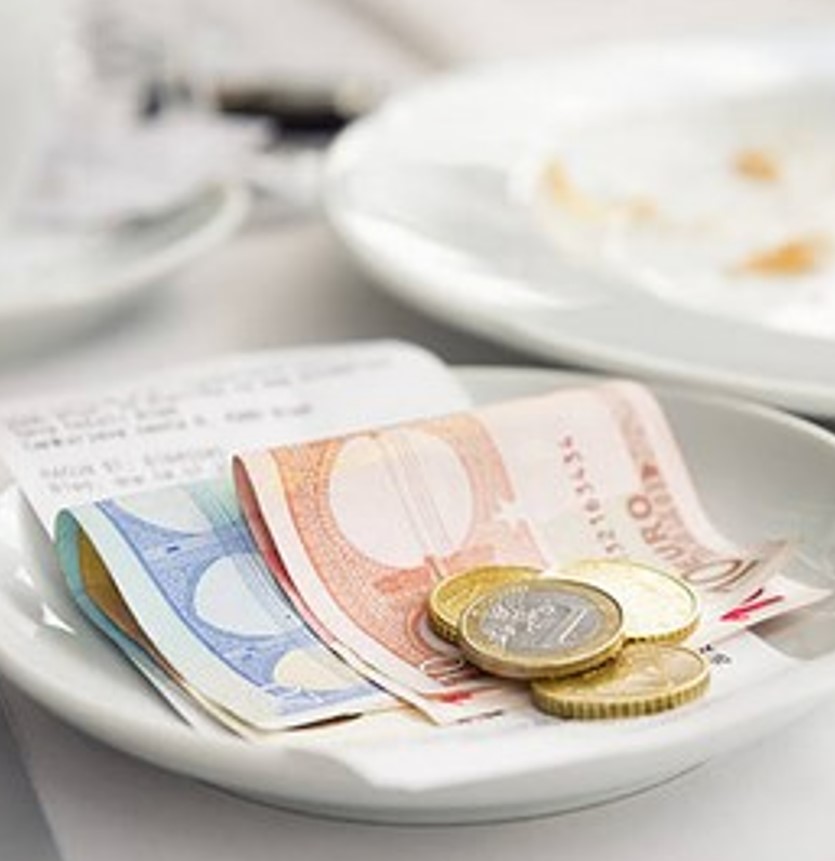
As someone who has traveled to France for decades, I’ve had the privilege of watching the country’s tourism scene evolve over the years. One thing that has become more and more evident is the increasing number of international visitors. It’s always exciting to see France’s popularity continue to rise, but with that growth comes the importance of being respectful and appreciative of the wonderful service providers who make our experiences unforgettable.
I’ve always made it a point to tip well—something I learned from my parents, who taught me to value good service. The service industry can be tough, and when things run smoothly, it’s often thanks to the people working behind the scenes. When it comes to tipping in France, though, things work a bit differently than in places like the United States. If you’re traveling there for the first time, the tipping culture can be a little confusing—but don’t worry, I’m here to help explain it.
Understanding Service Charges in France
The first thing you should know about tipping in France is that service is often included in the bill. In French restaurants and cafés, a service charge (service compris) is typically included in the menu prices. This means that waitstaff are already compensated for their work. In fact, the law requires that this charge be included in all food and beverage prices.
This service charge is usually around 15%, but just because it’s included doesn’t mean you’re off the hook when it comes to tipping! While tipping isn’t mandatory in France, it’s always appreciated, especially for good service. I always leave a small tip in addition to the service compris.
How much to tip?
So, if service is included, how much should you tip? While it’s not expected to leave large tips, small gestures go a long way and are greatly appreciated in France.
Restaurants │No need to leave a large tip, but rounding up your bill is a kind and appreciated gesture. For example, if your bill is €28.50, leaving €30 is a nice way to show gratitude.
Bars and Cafés │For drinks at a bar or café, a small tip is often appreciated. You can round up your bill or leave €1-2 for good service. If you’ve had a particularly enjoyable experience or received extra attention, leaving a bit more is always a nice touch.
Hotel Staff │I feel as if hotel staff are often overlooked in the modern era and that while most people understand the importance tipping in dining establishment the art of tipping hotel staff is a lesser known practice. Here’s my advice:
- Housekeeping : €1-2 per night left in the room or handed to the staff personally is a good practice, especially if you’ve had a longer stay. I always leave the tip on the pillow, so they understand it’s meant for them as opposed to loose change sitting on a table, desk, or nightstand.
- Concierge or bellhops: €1-2 for carrying bags or providing extra help. If you’ve received exceptional service (like securing a last-minute reservation at a popular restaurant), consider tipping a bit more.
- Doormen and Other Staff: If a doorman assists you with taxis or other services, a tip of around €1-2 is appropriate. The same is true for anyone who comes to the room to provide a service, such as replacing batteries in the television remote control.
Taxis │For taxis, tipping is not obligatory, but rounding up the fare is always appreciated. For example, if your fare is €14.50, you can round it up to €15 or leave €1-2 if the driver was particularly helpful or friendly.
Tour Guides │If you’ve had a private tour or a special guided experience, a €5-10 tip for a half-day tour or €10-20 for a full-day tour is a kind gesture to show appreciation for the guide’s expertise and effort.
Other Services │There are a variety of others who provide service during travel – keep them in mind too!
- Hairdressers and Beauticians: A tip of around €1-3 is customary.
- Valets: If you’ve used a valet service at a hotel or restaurant, €1-2 is typically appreciated.
When NOT to Tip
While it’s common to leave small tips in many situations, there are a few places where tipping is not expected. This includes the following:
- Supermarkets and grocery stores: Tipping is not needed in these settings.
- Small businesses or shops: Similarly, there’s no need to tip when purchasing items at shops or stores.
- Public transport: You don’t tip bus or metro drivers in France.
The Bottom Line
Whether you’re enjoying a croissant in a charming café, a glass of wine, or a private tour through the Louvre, take a moment to show your thanks for good service. A little gratitude can go a long way, and it’s always appreciated in the beautiful country of France!



Leave a Reply